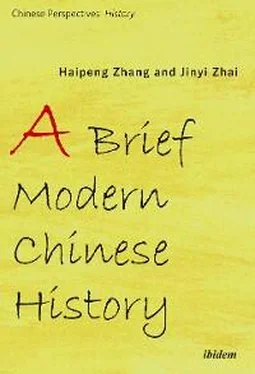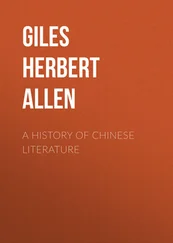ibidem-Press, Stuttgart
Contents
1. The Opium Wars and China’s Decline
China and the World before 1840
British Opium Smuggling and Lin Zexu’s Anti-Smuggling Endeavor
The Treaty of Nanjing and Its Aftermath
The Chinese Intellectuals’ Reaction and Solution
Social Changes in Post-War China
2. The Qing Government in Despair
The Taiping Rebellion and Its Socio-Political Experiments
The Aggressive Anglo-French Expedition Against China
Tsarist Russia: A Grabber of Chinese Lands
The Taiping Rebellion in Its Late Phase: Zeng Guofan and the Hunan Army
The Fall of the Heavenly Kingdom of Great Peace
3. The Lost Three Decades
Changes of the Central and Local Governments
The Self-Strengthening Movement (SSM)
Reformism in Its Initial Stages
Border Crises and the Sino-French War
Endless Incidents Involving Christian Missionaries
The 1895 Sino-Japanese War
The Treaty of Shimonoseki and the Cession of Taiwan
4. Post-1895 China: Reform, Rebellion, and Revolution
Return of the Liao Dong Peninsula to China and the Imperialist Powers’ Rat Race in the Far East
The Scramble for China
China’s Sprouting National Capitalism
Sun Yat-sen and Early Revolutionaries
The Abortive 1898 Hundred Days’ Reform
The Boxer Uprising: A Chinese Peasants’ Patriotic Anti-Imperialistic Endeavor
The Aggressive Allied Forces of the Eight Powers and Qing’s Response
The Boxer Protocol and a Fully Semi-Colonized and Semi-Feudalized China
5. On the Eve of Great Change
Qing’s New Policies and Ensuing Social Changes
The British Empire’s Invasion of Tibet and the Russo-Japanese Conflict in Northeast China
Tongmenghui and the Debates Involving Revolutionaries and Conservatives
Boycotting American Goods and Restoring China’s Rights
Building China’s Constitutional Monarchy
The Revolutionaries in Action
6. The 1911 Revolution: A Blend of Success and Failure
The Crisis-Ridden Qing
The Huanghuagang Uprising and Railway Protection Movement
The Wuchang Uprising
Sun Yat-sen, President of the Nanjing Provisional Government
The Collapse of Qing and the Rise of Yuan Shikai
7. China at Its Lowest Ebb: The Rule of the Beiyang Warlords
Yuan Shikai and Sun Yat-sen
The Rapid Collapse of the Hongxian Reign
China under the Warlords’ Rule
The Growth of China’s National Capitalism and the Working Class
The New Culture and May Fourth Movements
The Dissemination of Marxism and Socialism
8. The Beginning of China’s Tortuous Path to Progress
The Birth of the Communist Party of China
The Kuomintang’s First National Congress, the First United Front, and the Northern Expedition
The Clash Between the CPC and the Kuomintang and the Failure of the First Revolutionary Civil War
The Convergence of the Wuhan and Nanjing Nationalist Governments and the Nominal Unification of China
Establishing the Armed Independent Regime of Workers and Peasants in Jiangxi
The Kuomintang’s Encirclement and Annihilation and the CPC’s Counterattacks
The Social History Controversy of the 1930s
9. The Deepening National Crisis and the Adjustment of Class Relations
The September 18 Incident and the Nonresistance Strategy
Japan’s Intensified Aggression Against China and Jiang Jieshi’s Increased Nonresistance
China’s Greater Effort to Fight Japan
The Setback for the Chinese Communist Movement
The Sian Incident and China’s New Opportunity to Rehabilitate
10. The Outbreak of the War of Resistance Against Japan
The Lugouqiao Incident
The August 13th Incident in Shanghai and the Anti-Japanese National United Front
The National Defense System and the CPC and the Kuomintang’s Strategies
The ERA (Eighth Route Army) and the Battle of Shanxi
The Battle of Shanghai and the Nanjing Massacre
China’s Great Victory in Taierzhuang and the Fall of Wuhan and Guangzhou
11. The Two Battlefields in the War of Resistance Against Japanese Aggression
The Collaboration of the Kuomintang’s Frontal Battlefield and the CPC’s Battlefield Behind the Enemy Lines
The Incident in Southern Anhui
The Pearl Harbor Attack and the International Anti-Fascist United Front
The Kuomintang’s Failure on the Battlefront and the CPC’s Offensive in the Rear
Corruption and Dictatorship in the Areas under the Kuomintang’s Rule and the Growth of the CPC’s Revolutionary Anti-Japanese Bases
The Coalition Government and China’s Counteroffensive
The CPC-Kuomintang Struggle and Two Prospects for China
The Unconditional Surrender of Japan and China’s Final Victory in the War of Resistance
12. The Victory of the People’s War of Liberation and the Founding of the People’s Republic of China
Chongqing Negotiations and the Political Consultative Conference
Changing Sino-Soviet and Sino-US Relations
Outbreak of Full-Scale Civil War
The Crisis-Ridden Areas under the Kuomintang’s Rule and the Stable and Prosperous Liberated Areas
Three Great Decisive Battles
The Broken Peace Talks in Beijing and the PLA’s Capture of Nanjing
The Founding of the People’s Republic of China
13. The Historical Significance of the People’s Republic of China
The Birth of the People’s Republic of China Brings Epochal Change to China and the World
The PRC Lays the Foundation of a New Era of Socialist Development with Chinese Characteristics and the Rejuvenation of the Chinese Nation
The Birth of the PRC Witnesses the Tortuous Course Toward Success
Three Fundamental Themes and Four Lessons in Learning Modern Chinese History
Bibliography
Web Sources
1. The Opium Wars and China’s Decline
China and the World before 1840
In 1840 the British Empire launched the dirty First Opium War (1840–1842) against China. This war forcibly stopped the historical course in which China enjoyed a fully independent development, and marked the beginning of modern Chinese history. Chinese society gradually became semi-feudal and semi-colonial. A brief discussion of the global situation before the First Opium War follows.
Revolutions broke out in Britain in 1640 and in France in 1789 that led to the dawn of the capitalist system. Thereafter, the capitalist countries of Europe attempted to colonize the world. Using various means such as piracy, robbery, the slave trade, drug (opium) smuggling, wars of aggression, and so on, these colonialists plundered a large amount of wealth from Asia, Africa, and America. This looted wealth constituted a major source of capital and contributed decisively to the growth of European capitalism. History has proven that European capitalist civilization relied heavily on the colonial loot and plunder that it had taken from Asian, African, and American countries and their people, even though it did help to advance humankind. As a consequence, during the seventeenth century, the capitalist countries grew richer and richer while those in the colonized lands became poorer and poorer.
The 1760s saw the Industrial Revolution in Britain, which embodied the vibrant growth of capitalism in Europe. The following five decades in Britain, France, and the United States witnessed the growth of machine production in their economies. Britain, for example, accounted for 50% of the total industrial production in the world and 70% of global coal production in the 1820s. As a consequence, Europe’s social productivity grew by leaps and bounds. The rising empires then scrambled to grab colonies around the globe. By the 1830s, the north and south of Africa, Canada, Australia, New Zealand as well as Southwest and Southeast Asia were all colonized by the capitalist powers. However, as a great number of nations were being forcibly thrown into capitalism, China’s Qing dynasty (1644–1912) was still independent in Asia. The British Empire, however, set its sights on Qing and began smuggling opium into China. It was under such circumstances that new events took place one after another in China.
Читать дальше












